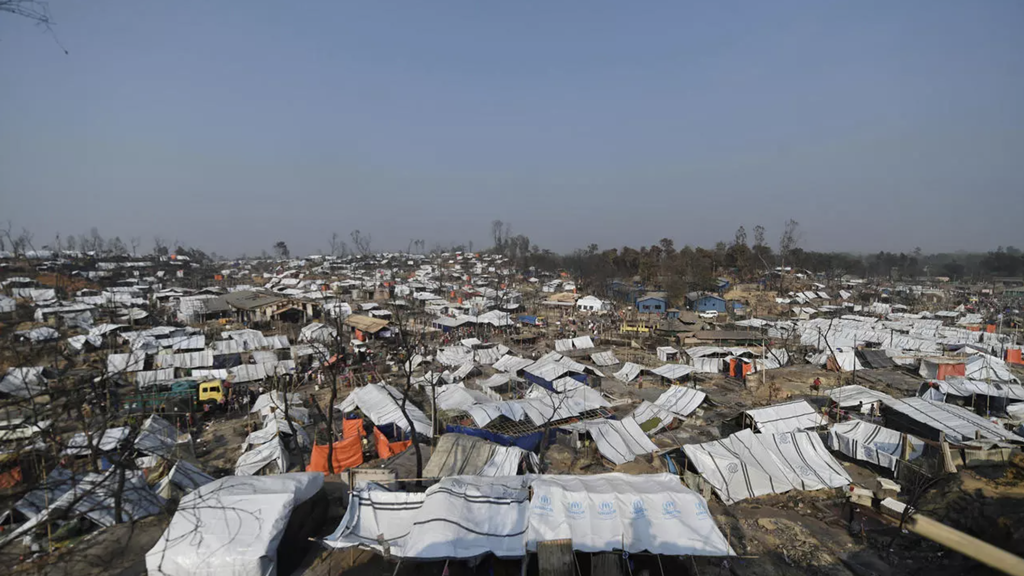
Bangladesh locks down Rohingya camps after virus spike
- 20/05/2021
- 0
By AFP
Bangladesh authorities on Thursday imposed a lockdown in five Rohingya refugee camps in the country’s southeast after a spike in coronavirus cases in recent days, officials said.
The restrictions barred gatherings and movement between camps, which are home to more than 100,000 Rohingya refugees, Bangladesh’s deputy refugee commissioner Shamsud Douza told AFP.
“We imposed the restrictions from today after sudden spikes in coronavirus cases in the five camps,” he said, adding Wednesday saw a single-day record in new infections.
Bangladesh authorities have set up 34 camps in the country’s southeastern district of Cox’s Bazar for nearly 900,000 Rohingya refugees, who fled persecution and violence in Myanmar.
They included some 740,000 Rohingya refugees who fled a deadly Myanmar military offensive in August 2017.
Douza said aid workers have been restricted in the camps, allowing only a bare minimum people who work in health, food and gas distribution to enter.
On Wednesday alone, 45 Rohingya tested positive for the virus out of 247 tested, said local health coordinator Toha Bhuiyan. The same number was also tested positive on Thursday.
“All five camps have been completely closed,” he told AFP.
“The infection number is alarming,” Anupom Barua, the Principal of Cox’s Bazar Medical College, told AFP. Barua has been monitoring the coronavirus situation in the camps since last year.
Since the virus was detected last year in the camps, Bangladesh authorities have tightly controlled visitors entry into the area, amid fear that Covid-19 could wreck havoc in the squalid and extremely congested settlements.
The restrictions helped keep down cases and deaths.
An international aid worker told AFP that the authorities have already used loudspeakers to warn people in the camps of the restrictions.
The worker said the number of cases have also jumped among the host Bangladeshi population in Teknaf, prompting the authorities to impose a lockdown in the southern-most border town.
A senior police officer told AFP that authorities have stepped up security and set up checkposts in the settlements.
Bangladesh launched a Covid-19 vaccination drive in February and some six million people have got one or two doses, but that campaign has not reached Rohingya refugees.






